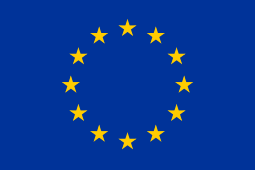What people say about Us?
Quick and Prompt
Jasvinder Sarang
Best Immigration Service In Chandigarh, I love the way Kaizen's team working day and night to give better service to students.
Kawal Kaur

Europe’s education system is one of the world’s oldest and most successful education systems. Several European destinations offer a diverse range of bachelor’s, master’s, and doctoral degrees in several fields and programs. An increasing number of European higher education institutions provide international study programs with English as the primary language of instruction; very few programs do not have English-taught degree programs.
Studying in Europe has become especially beneficial in recent years, as English-language programs are increasingly available in fields such as business, management, science, and engineering. Any foreign student planning to study in Europe can do so in any of the following European languages: German, French, Dutch, Swedish, Finnish, Danish, Norwegian, Greek, Spanish, Italian, or Portuguese, as long as they have a working knowledge of one of them.
The Erasmus project is a prominent feature of European study programs. Erasmus (European Community Action Scheme for University Student Mobility) is a European Commission educational initiative for students, teachers, and institutions in higher education. Student mobility, teacher mobility, and curriculum growth are all part of Erasmus, which is focused on agreements between higher education institutions in different countries.
Let’s take a look at some of Europe’s most successful study abroad destinations:
For master’s and doctoral programs, Germany is the go-to study abroad destination. International students account for more than 12% of students at German universities.
In Germany, there are three types of student visas:
If you have been admitted to study in Germany, you will need a student visa.
For applicants to the Hochschule für Musik und Theater (College of Music and Drama), a student-applicant visa is especially necessary so that they can enter the country for the entrance test. This three-month visa is beneficial to applicants who want to develop their language skills in Germany before beginning their studies. Once the applicant is accepted into a university or college during this period, the student-applicant visa is converted to a student visa.
For those who only wish to attend a language course in Germany, a visa for a language course is required. It’s worth noting that if you want to start studying in Germany right after your language course ends, you’ll need to apply for a student visa or a student applicant visa before you arrive. In Germany, a student visa or a student candidate visa cannot be automatically translated from a language course visa.
Student work permits in Germany are only valid for three months. Language course visas, on the other hand, are not eligible for a student working visa.
The Netherlands is a common option for Ph.D. students.
Visa Forms in the Netherlands
To operate in the Netherlands, you must first obtain permission from the Dutch government.
A Ph.D. student is regarded as a university employee, not a student. This is because, in the Netherlands, all types of study are considered “jobs.” If a student wishes to work, he or she must apply for a work permit. Lectures, studies, and student internships are all examples of academic work. If you have a residence permit, you are only required to work for a maximum of 10 hours per week or seasonal work. In this scenario, the employer must apply for the required student visa work permit. Since obtaining a student visa is time-consuming, the application process for the visa must be completed and documentation submitted at least 3-6 months before departure.
France is host to some of the world’s best business schools.
In France, there are many different types of student visas.
For students who are not French citizens and intend to study in France for more than three months, a student identification card is required. There are several types of student visas to choose from:
The Étudiant-Concours visa allows you to stay for up to 90 days. Students who need to take an entrance test, take a short course, or just visit the university before applying use it.
Long Stay Visa: This visa is valid for three months and can be extended as required.
Residence Permit (or Carte de Séjour): This is a one-year permit that can be renewed. The Préfecture de Police of the Residential Area issues it.
Temporary Long Stay Visa: For 3 to 6 months, but without a residency permit.
Students may apply for a student-working visa to supplement their income. During the academic year, students are permitted to work 10-20 hours a week. Work is allowed for 20-39 hours per week during summer vacations. Students who want to apply for a student work visa in France have a variety of options. Teaching, on the other hand, will be the better choice because it pays well in comparison.
Belgians are required to attend school from the age of six to eighteen. Belgium’s adult population is estimated to be 98 percent literate, and the OECD’s Program for International Student Assessment currently rates Belgium’s education as 19th in the world, slightly higher than the global average.
You must apply for a Temporary Residence Permit for Studies (Autorisation de Séjour Provisoire pour études/Machtiging tot Voorlopig Verblijf voor studies) from the Belgian Embassy for a study-related stay in Belgium.
Cabin No. 209-210
SCO 158-159, Third Floor
Sector 34A, Chandigarh - 160022
+91 8288811998
+91 8288802998
+91 8288890998
+91 8288874998
kaizenimmigrationservices@gmail.com
